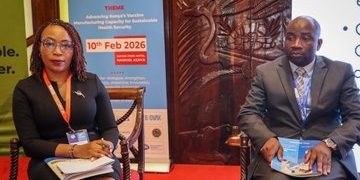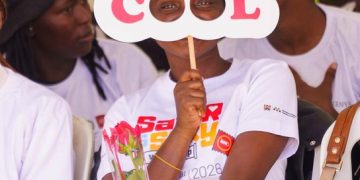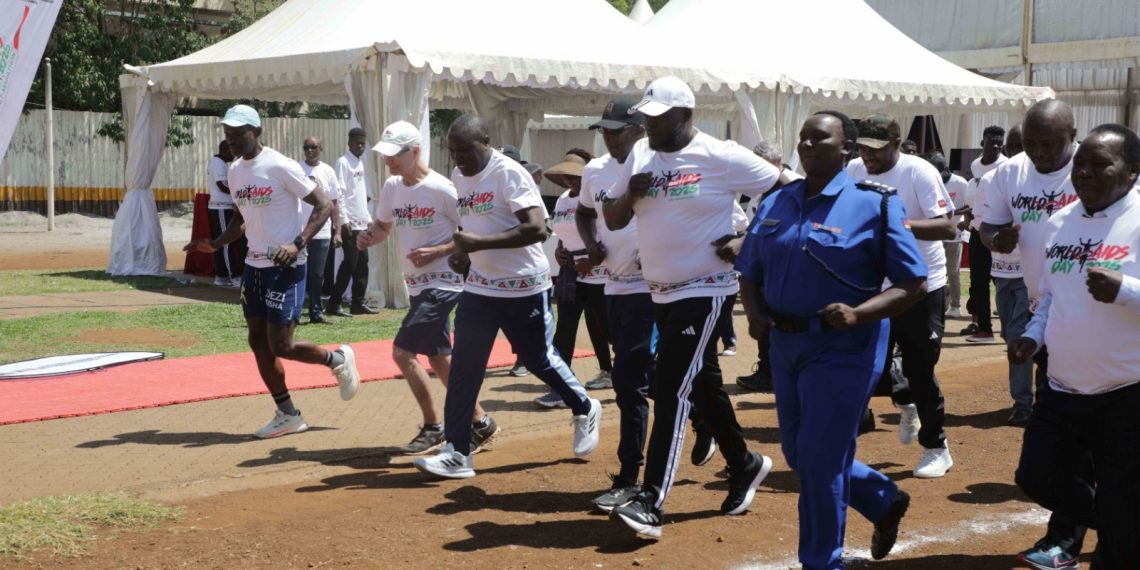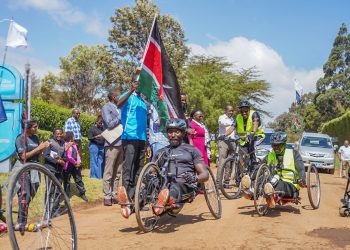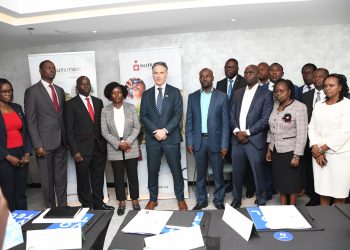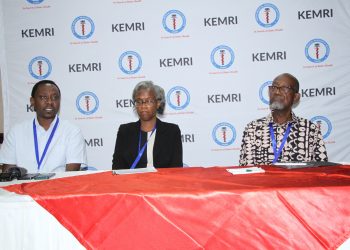Kenya has begun national preparations for this year’s World AIDS Day with a renewed call to action headlined by the Nairobi HIV Marathon, a flagship event aimed at raising awareness, honoring lives lost, and mobilizing citizens toward ending AIDS as a public health threat by 2030.
The soft launch was held at the Kenya Medical Training College (KMTC) in Nairobi, bringing together senior government officials, development partners, civil society organizations, youth groups and Athletics Kenya.
Dr. Ouma Oluga, Permanent Secretary for Medical Services at the Ministry of Health, said Kenya continues to grapple with a “triple threat”: rising HIV infections among adolescents, high teenage pregnancy rates and escalating gender-based violence.
He noted that new HIV infections among young people mirror the alarming 250,000 teenage pregnancies recorded in 2024 figures that are tightly linked to poor maternal and child health outcomes.
Dr Oluga added that as global donor support shifts, Kenya and the U.S. government are negotiating a new funding model. Meanwhile, the government is exploring ways to strengthen domestic financing to avoid service disruptions.
“Despite the transition in donor funding, no person living with HIV will miss viral load testing, ARVs or any essential services,” he assured.
He urged health workers and community networks to track and return patients lost to care during the transition.
Dr Oluga further emphasized that HIV services must be fully covered under the new Social Health Authority (SHA), and that service integration will be tailored to reflect differences between high-burden and low-burden counties.
Flanked by KMTC CEO Dr. Kelly Oluoch, Nairobi County Chief Officer for Public Health Tom Nyakaba and NEPHAK Executive Director Nelson Otwoma, NSDCC Acting CEO Dr. Douglas Bosire reiterated the country’s commitment to ending new infections especially among adolescents and young adults.
Dr Bosire reflected on the gravity of World AIDS Day, observed globally on December 1.
“Since 1984, Kenya has lost over 2 million people to AIDS-related illnesses,” he said adding that, “currently, 1.3 million Kenyans depend on consistent HIV treatment and care.”
Last year alone, Dr Bosire said that Kenya recorded 19,991 new HIV infections.41percent of those new infections were among young people aged 15–24. Three in every four new infections occurred among those aged 15–34, with nearly 4,000 children contracting HIV through mother-to-child transmission.
“The youth are the future of this nation. If we keep them healthy, Kenya will reap the demographic dividend,” Dr. Bosire said.
President William Ruto has directed the health sector to eliminate new HIV infections among children by 2027. But adolescents remain the most vulnerable group.
The Nairobi HIV Marathon scheduled for Sunday; November 30 at Nyayo National Stadium will serve as the national pre-event to World AIDS Day.
Organizers expect at least 10,000 participants, up from 7,000 last year.The event will feature 21.5 km half marathon,10 km competitive race, 5 km run,2 km family fun run, Wheelchair race, Zumba, yoga and aerobics sessions, Children’s and youth villages and a large medical camp offering screening and treatment everyone is encouraged to register *USSD 2222# or through the event website through the eCitizen platform.
Athletics Kenya confirmed that the route is professionally measured and compliant with World Athletics and anti-doping standards. Elite runners have already registered.
Prizes include KSh 250,000 for winners of the half marathon, KSh 100,000 for winners of the 10 km and wheelchair race categories
The race will start near Bunyala Road/Highway Mall and finish inside Nyayo Stadium. All bibs must be collected a day prior.
With more than 87,000 students, KMTC pledged to use its nationwide footprint to drive awareness among Kenya’s predominantly young population half of whom are under 24 years of age.
KMTC CEO DR Kelly Oluoch said the institution will intensify sexual and reproductive health education, citing rise in new HIV infections between 2023 and 2024.
Nairobi, one of Kenya’s highest burden regions which hosts nearly 160,000 people living with HIV, with 171,000 currently receiving ART across 228 treatment centres.
Nairobi City County Chief Officer Tom Nyakaba said the county has enhanced security for the marathon and is scaling up efforts to reduce new infections among young people.
While NEPHAK Executive Director Nelson Otwoma acknowledged that shifting donor priorities have disrupted services but urged the government to guarantee continuity.
He called for inclusion of non-communicable diseases such as hypertension and diabetes under SHA, noting that many people living with HIV are ageing.
“Ending new infections and ending AIDS deaths also means ensuring quality of life,” he said, urging government never to expose people living with HIV to funding shocks similar to those experienced during the Trump-era stop-work order.
While Nairobi will host the national marathon and central commemoration, all 47 counties will hold their own World AIDS Day events on December 1, coordinated by county health executives and county commissioners.




